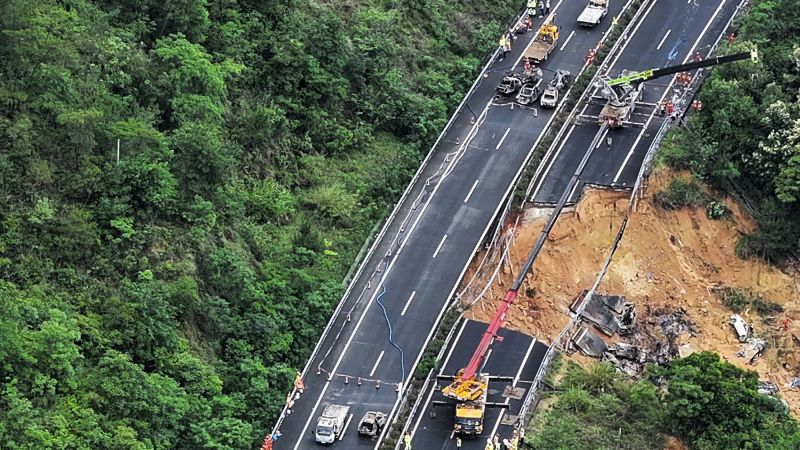/cloudfront-us-east-2.images.arcpublishing.com/reuters/QWHPBZFR5RNFNHHGBM2JFT5AAE.jpg)
TOKYO (Reuters) – Japan’s move to block most used car sales to Russia has curbed a trade worth nearly $2 billion a year that has boomed under sanctions imposed on Ukraine elsewhere, according to trade data and market participants.
In early August, the Japanese government banned the export of all but small cars to Russia, cutting off a lucrative back channel in trade in used Toyota, Honda and Nissan cars to a network of brokers and smaller ports, especially Fushiki, an export hub on the Sea of Japan. .
While the sanctions have wiped out Russia’s largest used car exporter, they have depressed used car prices in Japan and left brokers scrambling to send cars to other regions, especially right-hand drive markets in New Zealand, Southeast Asia and Africa.
Russian demand for used cars from Japan jumped sharply after global automakers, including Toyota, withdrew from operations in the wake of Moscow’s invasion of Ukraine.
By last year, as sanctions tightened elsewhere, Russia was buying more than a quarter of Japan’s used car exports at an average price of nearly $8,200. That was more than double the price in 2020, when Russia accounted for about 15% of Japan’s used car exports.
Trade data shows those sales were on track to reach $1.9 billion for all of 2023 before Japan imposed its toughest sanctions.
More than half of the 303,000 used cars Russia imported in the first eight months of the year came from Japan, according to figures from the Russian analysis agency Autostat.
This compares to sales of 606,950 new cars from mainly Russian and Chinese brands during the same period, Autostat data showed.
Toyama-based SV Alliance, an auto exporter founded two years ago, was part of a wartime boom that sent an average of 6,500 used cars to Russia a month through July from Japan’s Fushiki. The port is located about 800 kilometers (500 miles) from the Russian city of Vladivostok, and two days away from the cargo ship’s sailing.
“Business fell by about 70% and we had to lay off some people because there is not enough work,” said Olesya Alekseeva, logistics coordinator at SV Alliance.
Cheaper cars for recyclers
Japan has been one of the leading countries in exporting used cars for decades. The mandatory inspection system raises the cost of maintaining used cars for customers in Japan. In contrast, financing costs for new car purchases are low.
The result: an export industry that sent hundreds of thousands of cars on the road from Malaysia to Mongolia and from Pakistan to Tanzania, all of which were first purchased in Japan.
Takanori Kikuchi, director of auto trade policy at Japan’s Ministry of Economy, Trade and Industry, said the government is “watching to see what kind of impact” the new sanctions will have.
Japan originally banned the export of luxury cars to Russia in April last year. It added a ban on the export of heavy trucks in June.
Under the new sanctions, dealers are still allowed to export smaller cars, such as the Toyota Yaris or Honda Fit, to Russia.
Element Trading, a used car trading company in Niigata Prefecture bordering Toyama, has seen Russia’s share of its business decline from a peak of more than 50% to less than 20%, said CEO Wataru Nishiwaki.
Preliminary data from auto auction house USS showed that the number of used cars on offer rose more than 20% in August compared to the previous year, while average car selling prices recorded a 7% decline.
Some welcomed the lower prices. Battery recycler 4R Energy has seen a “significant” tailwind from lower prices for used cars, including the Nissan Leaf, CEO Yutaka Hori said.
He added that lower prices give the joint venture between Nissan and Sumitomo Trading Company a greater opportunity to secure supplies.
($1 = 149.3000 yen)
Report by Daniel Leussink – Prepared by Muhammad for the Arabic Bulletin. (Additional reporting by Gleb Stolyarov) Editing by Kevin Krolicki and Sonali Paul
Our standards: Thomson Reuters Trust Principles.

“Web maven. Infuriatingly humble beer geek. Bacon fanatic. Typical creator. Music expert.”

:quality(85)/cloudfront-us-east-1.images.arcpublishing.com/infobae/5UO63CBHEMLEHSVUAGLCAHP2Q4.jpg)



More Stories
Antitrust court documents show that Google's payments to Apple reached $20 billion in 2022
Qualcomm offers strong forecasts in reference to smartphone recovery
Johnson & Johnson proposes $6.5 billion deal to settle talc cancer lawsuits